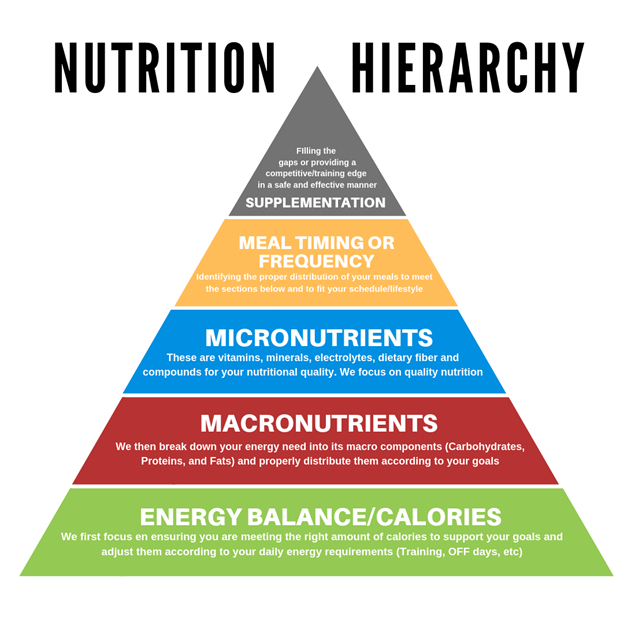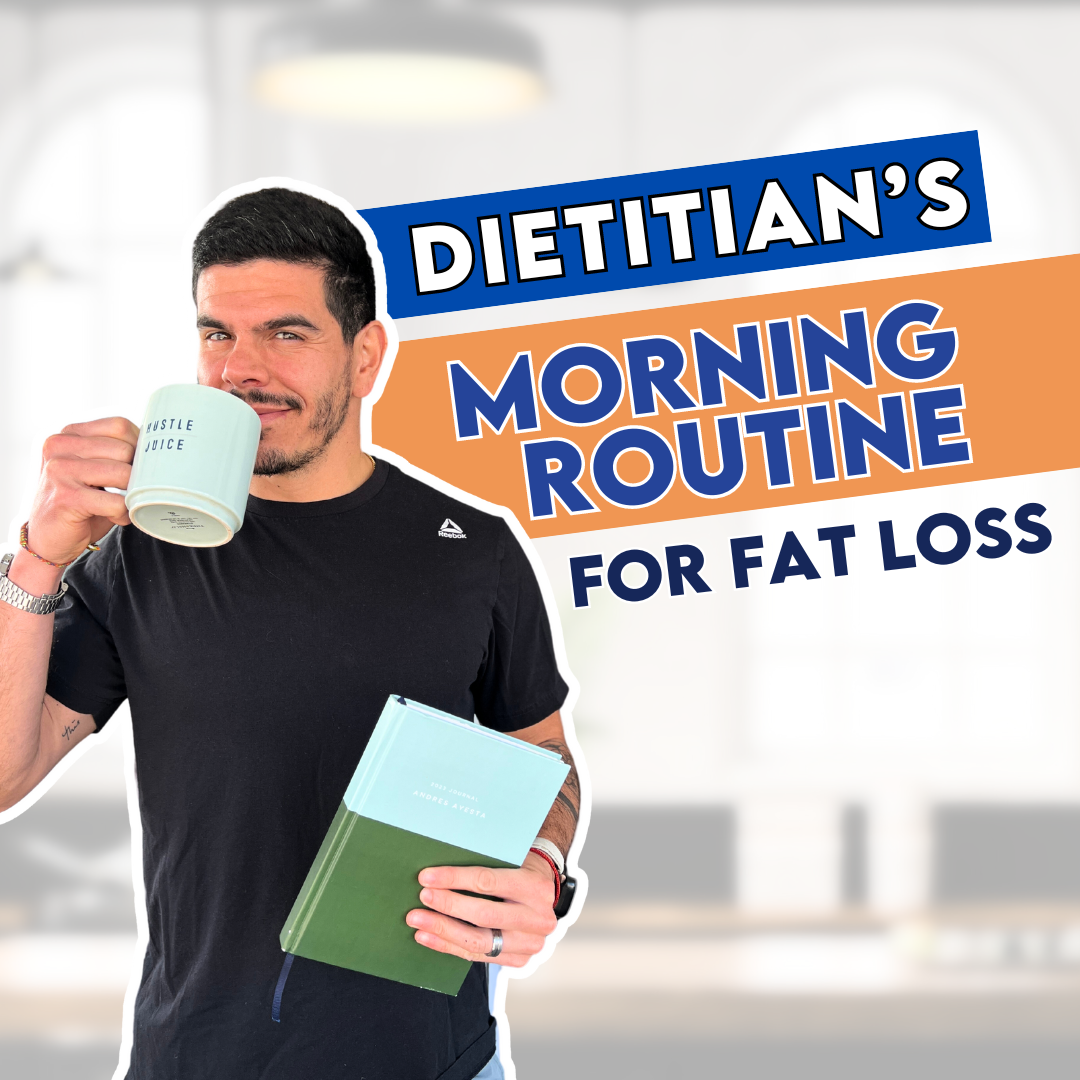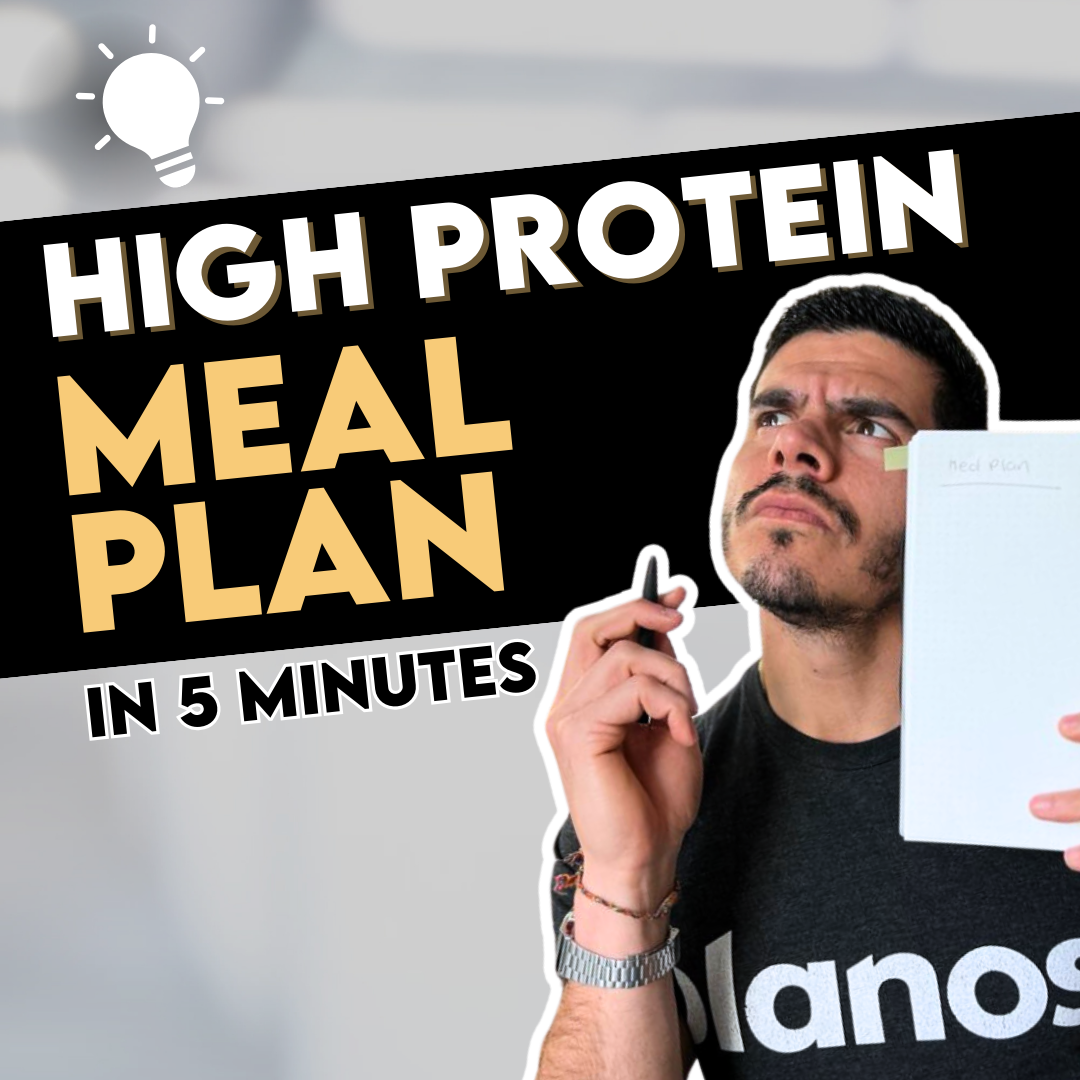There are a lot of pre and post workout supplements out there that claim to help you lose weight, build muscle, and perform better in the gym. But, which ones are actually backed by research and which are most likely a waste of money?
Which Workout Supplements Should You Take?
There are a lot of pre and post workout supplements out there that claim to help you lose weight, build muscle, and perform better in the gym. But, which ones are actually backed by research and which are most likely not worth your money? Today I’m going to give you an overview of common supplements and their ingredients so you can make informed choices about the supplements you choose to include in your diet.
Do I need to take supplements?
The first thing you should know about supplements is they are absolutely not necessary for fat loss and muscle gain. Take a look at the nutrition hierarchy below.

The Nutrition Hierarchy is a concept created by Dr. Eric Helms. It explains the various factors at play in whether an individual can successfully build muscle or lose fat. He ranks these factors in order of their importance, with the bottom tier of his pyramid being the most important. The bottom level provides a base that can be built upon by considering the factors at higher levels of the pyramid (1).
As you can see, supplements are found at the top of the pyramid because they are not a major driver of results. A lot of people get caught up in purchasing supplements because they’re tempted by the thought that some magic solution is going to make fat loss easier.
In reality, it’s the lower tiers of the pyramid that are the true drivers of results. No supplement is going to take the place of well-balanced nutrition from whole foods!
Supplements can fill gaps in nutrition (for example, protein powder can help you meet your protein targets) and, as we’ll discuss below, some supplements can be advantageous for fitness performance. But their role is supportive, rather than central.
So, let’s take a look at the different supplement options on the market and which options are backed by research. We’re going to be discussing both pre-workout and post-workout supplements.
Pre-Workout Supplements
Pre-workout supplements have become pretty popular recently, with claims they give you a boost to work harder in your workouts and therefore get better results.
CAFFEINE
Caffeine can be consumed on its own for a burst of energy before a workout, but it is also a common ingredient in many pre-workout supplements.
Pros
Studies indicate it can reduce tiredness and increase focus and energy (2). It has been found to improve performance during endurance training, and some small studies have found that it may also be beneficial for high intensity training and power sports (3, 4, 5). Research indicates that it increases heat production in the body, resulting in greater calorie burning (6).
Cons
It can cause sleep disturbance and increase anxiety, particularly for people who are already prone to anxiety and trouble sleeping (7, 8). If you work out in the evening, I strongly recommend that you don’t consume a pre-workout supplement with caffeine. Even if you say, “I can sleep even if I drink espresso before bed” this doesn’t mean it’s a good thing to do. While you might be able to fall asleep, sleep quality often suffers. Additionally, many people experience symptoms of withdrawal if they are regular coffee drinkers and abruptly stop.

CREATINE
Creatine is another supplement that can be consumed on its own (usually in capsule form or mixed with liquid) but is often an ingredient in pre-workout supplements. Creatine helps muscle cells produce more energy and increases the formation of proteins that lead to muscle growth, among other functions (9).
Pros
One of the most well-researched and safe sports supplements; it can improve recovery time, and increase muscle mass, strength, and performance (10). It may be included in some pre-workout drinks, but you can also purchase creatine (go for creatine monohydrate) in powdered form to mix with a drink each day.
Cons
Not everyone sees a benefit from supplementing with creatine – some people are “non-responders” (11). Additionally, you may see the number on the scale go up when you take creatine – but not because it’s causing fat gain. Creatine increases the amount of water retained in the muscles, so the higher number is due to water weight (10).
NITRIC OXIDE PRECURSORS – eg. nitrate, L-arginine, L-citrulline, beetroot juice
Nitric oxide relaxes blood vessels to increase blood flow, allowing more oxygen and nutrients to get to the muscles during exercise (12).
Pros
Some studies suggest that supplementation with nitrate increases athletic performance (12). L-citrulline (another precursor of nitric oxide) has been found to have similar effects (13). Supplementation with beetroot juice has also been shown to improve cardiovascular endurance (14).
Cons
These supplements are not extensively researched and sometimes results are conflicting (15). Studies are also small and mostly conducted on young men. Additionally, while some nitric oxide precursors have shown to be effective, L-arginine’s effect seems to be minimal (16).

BETA-ALANINE
Beta-alanine is a non-essential amino acid, meaning it is synthesized by the body. It is a precursor of carnosine, which is stored in the muscles. Carnosine’s function is to reduce lactic acid in the muscles during exercise. Lactic acid causes fatigue in the muscles so less of it can help reduce fatigue and improve performance during high intensity exercise (17).
Pros
For high-intensity training, beta-alanine can reduce fatigue and increase the volume of training you can perform (17, 18). Additionally, test tube studies indicate that carnosine is an antioxidant and can help support the immune system, but research is needed in humans (19).
Cons
Most studies on beta-alanine have looked into its effects for short duration exercise; more research is needed into its impact on endurance exercise, and in general, there is a need for better quality studies (20).
Supplementation with beta-alanine may cause skin tingling or itching in the hands, face, and neck (21). While it’s not harmful, some people find it irritating. If you find the tingling uncomfortable but still want to experiment with using beta-alanine, try a beta-alanine supplement that has sustained-release formulation, as research has shown it typically removes this side effect (22).
Post-Workout Supplements
We’re going to be discussing post-workout supplements as anything that isn’t designed to give you that pre-workout boost to enhance performance. Instead, these supplements are focused more on rebuilding and recovering.
PROTEIN POWDER
Protein powder is a great option if you’re struggling to meet your daily protein needs. It can be added to smoothies, oatmeal, and even some baked goods to make them more satiating and nutrient-dense. However, you should try to have most of your protein coming from whole food sources, with powders, bars, and other protein supplements just used to top up your protein intake (23, 24).
Beyond the muscle-building benefits, protein is also helpful because it makes meals and snacks more satiating. So if you’re trying to lose weight, adding protein powder can help you feel more satisfied and prevent overeating. Aim for powders rather than bars most of the time, as protein bars can have many additional ingredients beyond protein and they are often calorically dense.
BRANCHED CHAIN AMINO ACIDS (BCAAs)
The term “BCAAs” refers to 3 amino acids: leucine, isoleucine and valine. These amino acids are broken down in the muscles, so they are thought to cause decreased muscle breakdown, greater recovery, and reduced fatigue and soreness (25, 26)
Most studies on BCAA supplementation are small, and results are conflicting (25, 27, 28). Some research suggests that BCAAs can be effective for recovery, but not as effective as a whey protein supplement, which has all the essential amino acids your body needs, including the three BCAAs (25). Other research found that taking a BCAA supplement while completing a strength training program resulted in greater fat loss and muscle gain than a whey protein supplement, but this was just a single study and other studies have found no effect on body composition (27, 28).
Right now, there needs to be more research on BCAAs to determine if they’re effective (25, 26). I would encourage you to focus on sufficient protein intake (ie. getting all the amino acids you need, including BCAAs) first, because this seems to be the main driver of muscle-building and fat loss, rather than specifically focusing on BCAAs (25).
ELECTROLYTE DRINKS
Electrolytes in your body are essential for controlling fluid balance, blood pressure, muscle contraction, and many other bodily functions. When you sweat, you lose water and electrolytes, so electrolyte drinks are designed to help with rehydration (29).
For most people exercising for under an hour, these drinks are unnecessary and plain water is effective for rehydration. If you’re exercising for more than an hour or you’re in a hot climate where you sweat a lot, these drinks may be beneficial. But check out the labels first! Many sports drinks contain a lot of added sugar, so try to find a drink or a drink mix that doesn’t add extra sugar and calories (unless you need a quick source of simple carbs and calories for very intense prolonged exercise) (29).

Key Takeaways on Workout Supplements
First, I want to leave you with a few thoughts on pre-workouts. While they may have some benefits, here is the truth:
If you’re running on empty and need pre-workout to get through every training session, there are other lifestyle factors that are more important to address first.
Pre-workout supps aren’t a replacement for 8 hours of sleep each night, taking rest days, and eating enough calories to fuel your body. These are the most common causes of low energy that must be addressed.
Additionally, for most non-athletes just trying to improve their fitness and body composition, CONSISTENT exercise is going to be much more significant than intense sessions fueled by pre-workout.
But, if pre-workout helps you get in the headspace to hit the gym and you enjoy it, go for it! But try to pick one that has been 3rd party tested (eg. Informed Choice certified). If you want to know more about 3rd party testing and why it’s important, check out this podcast episode.
Or, just go for a cup of coffee – it’s much cheaper and gives you the same hit of caffeine.
Looking at post-workout supplements, protein powders are a great option if you’re eating a higher protein diet to lose fat but you’re struggling to get enough protein in from whole food sources (this is especially true for vegetarian and plant-based eaters). But, remember – protein powder shouldn’t be the main source of protein in your day. It’s okay to include it daily, but aim for whole food sources for most of your protein intake.
With regard to other supplements that you can take post-workout, I wouldn’t recommend them for most people – not because they have zero benefit, but because their effects aren’t significant or well-researched enough that they’re worth the money. There may be certain cases when additional supplements are beneficial (particularly for athletes), but it’s best to discuss these on a case-by-case basis with a dietitian.
Remember: if your goal is fat loss, your main focuses should be:
- Lots of veggies
- Lots of water
- Lots of protein
- Lots of daily movement/steps
- Lots of sleep
- Building a good relationship with food and staying consistent.
Once those factors are on point, then supplements are an option to elevate your results.
References
1. Helms ER, Valdez A, Morgan A. The Muscle & Strength Pyramid – Nutrition. Independently Published; 2019
2. Cappelletti S, Daria P, Sani G, Aromatario M. Caffeine: cognitive and physical performance enhancer or psychoactive drug?. Current neuropharmacology. 2015 Jan 1;13(1):71-88.
3. Pasman WJ, Van Baak MA, Jeukendrup AE, De Haan A. The effect of different dosages of caffeine on endurance performance time. International journal of sports medicine. 1995 May;16(04):225-30.
4. Woolf K, Bidwell WK, Carlson AG. The effect of caffeine as an ergogenic aid in anaerobic exercise. International journal of sport nutrition and exercise metabolism. 2008 Aug 1;18(4):412-29.
5. Warren GL, Park ND, Maresca RD, McKibans KI, Millard-Stafford ML. Effect of caffeine ingestion on muscular strength and endurance: a meta-analysis. Medicine & Science in Sports & Exercise. 2010 Jul 1;42(7):1375-87.
6. Astrup A, Toubro S, Cannon S, Hein P, Breum L, Madsen J. Caffeine: a double-blind, placebo-controlled study of its thermogenic, metabolic, and cardiovascular effects in healthy volunteers. The American journal of clinical nutrition. 1990 May 1;51(5):759-67.
7. Winston AP, Hardwick E, Jaberi N. Neuropsychiatric effects of caffeine. Advances in Psychiatric Treatment. 2005 Nov;11(6):432-9.
8. Drake C, Roehrs T, Shambroom J, Roth T. Caffeine effects on sleep taken 0, 3, or 6 hours before going to bed. Journal of Clinical Sleep Medicine. 2013 Nov 15;9(11):1195-200.
9.Casey A, Constantin-Teodosiu D, Howell S, Hultman EG, Greenhaff PL. Creatine ingestion favorably affects performance and muscle metabolism during maximal exercise in humans. American Journal of Physiology-Endocrinology And Metabolism. 1996 Jul 1;271(1):E31-7.
10. Powers ME, Arnold BL, Weltman AL, Perrin DH, Mistry D, Kahler DM, Kraemer W, Volek J. Creatine supplementation increases total body water without altering fluid distribution. Journal of athletic training. 2003 Jan;38(1):44.
11. Syrotuik DG, Bell GJ. Acute creatine monohydrate supplementation: a descriptive physiological profile of responders vs. nonresponders. The Journal of Strength & Conditioning Research. 2004 Aug 1;18(3):610-7.
12. Jones AM. Dietary nitrate supplementation and exercise performance. Sports medicine. 2014 May;44(1):35-45.
13. Vallejo A, Pelen F, Halimaoui I, Doutreleau S, Verges S. Synergetic Effect of NO Precursor Supplementation and Exercise Training. Medicine and Science in Sports and Exercise. 2020 Nov 1;52(11):2437-47.
14. Domínguez R, Cuenca E, Maté-Muñoz JL, García-Fernández P, Serra-Paya N, Estevan MC, Herreros PV, Garnacho-Castaño MV. Effects of beetroot juice supplementation on cardiorespiratory endurance in athletes. A systematic review. Nutrients. 2017 Jan;9(1):43.
15. Da Silva DK, Jacinto JL, De Andrade WB, Roveratti MC, Estoche JM, Balvedi MC, De Oliveira DB, Da Silva RA, Aguiar AF. Citrulline malate does not improve muscle recovery after resistance exercise in untrained young adult men. Nutrients. 2017 Oct;9(10):1132.
16. Brooks JR, Oketch-Rabah H, Low Dog T, Gorecki DK, Barrett ML, Cantilena L, Chung M, Costello RB, Dwyer J, Hardy ML, Jordan SA. Safety and performance benefits of arginine supplements for military personnel: a systematic review. Nutrition reviews. 2016 Nov 1;74(11):708-21.
17. Kern BD, Robinson TL. Effects of β-alanine supplementation on performance and body composition in collegiate wrestlers and football players. The Journal of Strength & Conditioning Research. 2011 Jul 1;25(7):1804-15.
18. Hill CA, Harris RC, Kim HJ, Harris BD, Sale C, Boobis LH, Kim CK, Wise JA. Influence of β-alanine supplementation on skeletal muscle carnosine concentrations and high intensity cycling capacity. Amino acids. 2007 Feb;32(2):225-33.
19. Klebanov GI, YuO T, Babenkova IV, Lyubitsky OB, OYu R, Boldyrev AA, YuA V. Effect of carnosine and its components on free-radical reactions. Membrane & cell biology. 1998 Jan 1;12(1):89-99.
20. Quesnele JJ, Laframboise MA, Wong JJ, Kim P, Wells GD. The effects of beta-alanine supplementation on performance: a systematic review of the literature. International journal of sport nutrition and exercise metabolism. 2014 Feb 1;24(1):14-27.
21. Liu Q, Sikand P, Ma C, Tang Z, Han L, Li Z, Sun S, LaMotte RH, Dong X. Mechanisms of itch evoked by β-alanine. Journal of Neuroscience. 2012 Oct 17;32(42):14532-7.
22. Varanoske AN, Hoffman JR, Church DD, Coker NA, Baker KM, Dodd SJ, Harris RC, Oliveira LP, Dawson VL, Wang R, Fukuda DH. Comparison of sustained-release and rapid-release β-alanine formulations on changes in skeletal muscle carnosine and histidine content and isometric performance following a muscle-damaging protocol. Amino Acids. 2019 Jan;51(1):49-60.
23. Kårlund A, Gómez-Gallego C, Turpeinen AM, Palo-Oja OM, El-Nezami H, Kolehmainen M. Protein supplements and their relation with nutrition, microbiota composition and health: is more protein always better for sportspeople?. Nutrients. 2019 Apr;11(4):829.
24. Cintineo HP, Arent MA, Antonio J, Arent SM. Effects of protein supplementation on performance and recovery in resistance and endurance training. Frontiers in nutrition. 2018 Sep 11;5:83.
25. VanDusseldorp TA, Escobar KA, Johnson KE, Stratton MT, Moriarty T, Cole N, McCormick JJ, Kerksick CM, Vaughan RA, Dokladny K, Kravitz L. Effect of branched-chain amino acid supplementation on recovery following acute eccentric exercise. Nutrients. 2018 Oct;10(10):1389.
26. Fouré A, Bendahan D. Is branched-chain amino acids supplementation an efficient nutritional strategy to alleviate skeletal muscle damage? A systematic review. Nutrients. 2017 Oct;9(10):1047.
27. Spillane M, Emerson C, Willoughby DS. The effects of 8 weeks of heavy resistance training and branched-chain amino acid supplementation on body composition and muscle performance. Nutrition and health. 2012 Oct;21(4):263-73.
28. Stoppani J, Scheett T, Pena J, Rudolph C, Charlebois D. Consuming a supplement containing branched-chain amino acids during a resistance-training program increases lean mass, muscle strength and fat loss. Journal of the International Society of Sports Nutrition. 2009 Jul;6(1):1-2.
29. Thomas DT, Erdman KA, Burke LM. Position of the Academy of Nutrition and Dietetics, Dietitians of Canada, and the American College of Sports Medicine: nutrition and athletic performance. Journal of the Academy of Nutrition and Dietetics. 2016 Mar 1;116(3):501-28.
explore more
explore more


